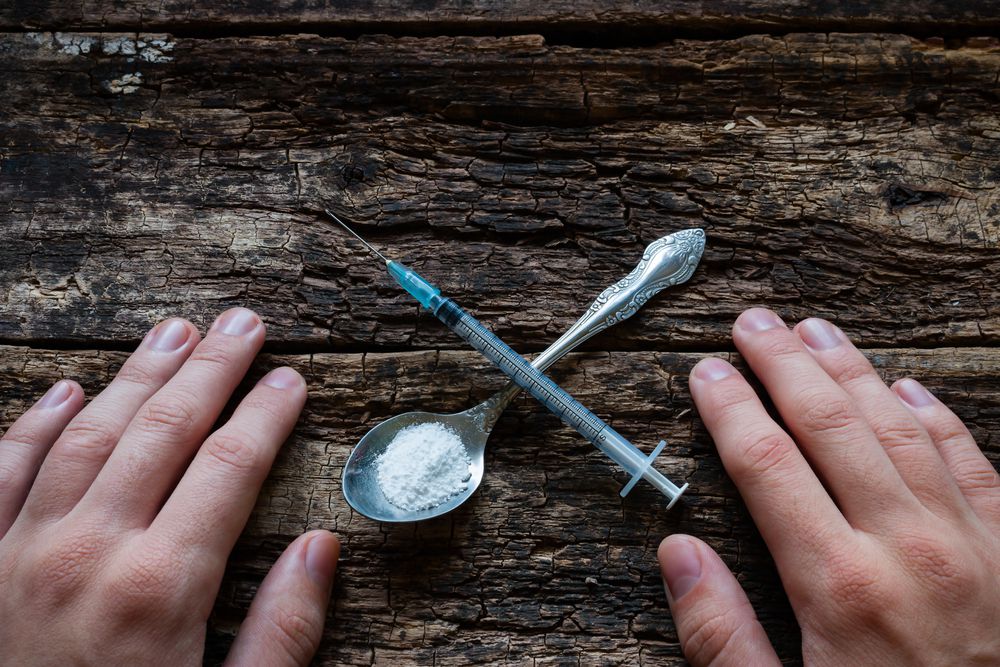In-patient addiction treatment comes with many advantages. Making the decision to stop using drugs and alcohol is rarely one that is made lightly. The addict may grapple with a lot of things before getting to that point, such as disintegrating relationships, job loss, financial crisis, and failing physical and mental health. They may have had trouble accepting that they have a problem or they might be in fear of the stigma that is often associated with addiction.
And so making this choice is, in most cases, very brave and not at all easy. And while it is the crucial first step without which nothing else can happen, giving up drugs is not simply a matter of no longer using it. For many addicts, the use of the substance has become necessary to their survival. No matter how determined you are, if you have been addicted to alcohol for a long period of time, your life can be in danger if you suddenly deprive your body of it.

This is why most addicts cannot and should not attempt to stop using drugs without some kind of support – and for many, this involves trying to figure out if inpatient addiction treatment and rehab is the right avenue.
What Is Inpatient Addiction Treatment?
An inpatient addiction treatment program is one in which you stay at the facility, day and night, for the duration of your treatment. While some feel that the cost of in-patient addiction treatment is hefty, it is important to bear in mind that this includes sleeping and living facilities, meals, physical and mental health care plus addiction therapies and treatments. Often, it can also include the provision of a variety of recreational facilities.
One of the big benefits to an inpatient rehab program is that with all of your necessities of life taken care of, you can focus on your recovery.
What Is It Like To Live At A Rehab Centre?
Inpatient addiction treatment facilities range from the very basic to the highly luxurious. If you don’t have a lot of money to spend, you can opt for a facility that has shared sleeping accommodations and canteen-style meals similar to those you get in a university dorm. If your pockets are deeper, or if you are able to find additional funding from another source, you can go for a very upscale in-patient addiction facility with a luxury private room and chef-prepared meals.
Regardless of the level of luxury, almost all inpatient addiction treatment centres provide exercise facilities of some kind along with some recreational activities, ranging from basic movie-and-popcorn nights to luxury golf days. Rehab is not intended to feel institutional. Residents are supposed to feel that they are in a residential facility and not in a hospital. This is one of the many benefits of in-patient addiction treatment facilities.
Do Inpatient Rehab Facilities Have Strict Rules?
Again, the rules depend largely on the facility, but yes – there are rules that are strictly enforced. These rules exist for the sole purpose of protecting all of the facility’s residents.
Some typical rules include the following:
- While personal items like photographs and books are encouraged, residents are usually prohibited from bringing mobile phones, any material glorifying substance abuse, items that can be used as weapons or tools for suicide, and clothing with offensive logos or pictures.
- Essential prescription medication is allowed as long as its use does not conflict with addiction recovery efforts. Most facilities store the medication in a safe place and dispense it as required.
- By law, residents with service animals have to be accommodated, but it is your responsibility to provide the documentation that is required in your state or province.
- Residents are generally not allowed to leave the facility unless there is a specific reason for them to do so, such as a dentist appointment or an organized trip.
Related article: Why You Should Not Attempt Alcohol Withdrawal At Home
What Does A Typical Inpatient Rehab Program Look Like?
Increasingly, as we recognize that everyone’s needs and circumstances are unique, there is a drive to provide custom addiction treatment services. That way, instead of trying to shoehorn everybody into treatment methods that may not work for them, all residents are provided with the treatment they need. By following this approach, post-rehab relapse rates are much lower, and residents have a better chance of going on to achieve lifelong sobriety.
Some therapies and treatments that you can expect during inpatient addiction treatment programs include:
- Group, individual and family therapy
- Yoga, meditation and mindfulness coaching
- Life coaching and life skills training
- Creative therapies that use art, music and dance
- Nutrition counselling and fitness training
What Are The Benefits Of Inpatient Addiction Treatment?
Inpatient addiction treatment programs can benefit almost everyone who has an addiction to drugs or alcohol. Time and time again, they have been proven to produce the highest success rates when it comes to addiction treatment.
Some of the benefits include the following:
- The medical detox phase keeps you safe and comfortable while the substance works its way out of your system, a process that for some individuals and some substances, can be life-threatening without proper medical supervision.
- Without access to drugs and alcohol, you will not be able to give in to cravings – instead, you will learn positive ways of dealing with them.
- Rehab gives you time away from loved ones, who may need to take this time to work through their own emotional upheavals.
- You have support at all times of the day and night.
- Having a schedule to stick to, and people who will hold you accountable can help you create responsible habits that you can take with you for the rest of your life.
- You are among people who have an understanding of what it is like to be in your shoes, and who genuinely want you to succeed.
- Conversely, when you have been there for a while, you are in a position to provide much-needed support for people who are coming in after you.
- You don’t have to worry about the stresses of daily life, so you can throw all of your focus into your recovery.
Are There Any Disadvantages?
The primary factor that pushes many people away from the idea of inpatient rehab is the cost. Although the price does include everything you will need to receive treatment and survive, there is no denying that it is out of reach for some.
In addition, committing to inpatient rehab means stepping away from your life for a while. If you are employed, you have to take time off work; you have to ensure that the bills at home can be paid while you are gone. Also, you may have to explain a lengthy upcoming absence to people who do not know you are struggling with an addiction.
And of course, you have to consider what will happen when rehab ends. You are at your highest risk of relapse for the first-month post-rehab, and you need to ensure that you have the right support in place to help you when you get back into the real world.
Making The Most Of Inpatient Addiction Treatment
Addiction is a devastating condition that does not only affect the addict. It also affects family members, friends, work colleagues and neighbours. By going into an inpatient addiction treatment program, you are not only healing yourself – you are helping those around you recover from your period of addiction.

You are building up your own physical and mental strength, and dealing with issues that may have been holding you back for years. At the same time, you are proving to yourself just how resilient and resourceful you are.
You have a world of opportunity just waiting for you: better relationships, more solid job or education prospects, financial security, and above all, a sense of self-worth and accomplishment. All you have to do is take that first step and call for help. Call 1000 Islands Addiction Rehab & Treatment Centre for addiction treatment programs.
Related article: Be in the Know: Canada’s Latest Alcohol Addiction and Recovery Facts
